Things Only a Female Manager Can Do
It was in late 1985 that Taeko Utsugi received an offer to manage a corporate softball team. She was hesitant at first, since there had never been a female manager in the league, but she accepted the offer after being encouraged to do so by her father. She led her third-division team to the top division in just three years and became the national team manager in 1997, leading Japan to a silver medal at the 2000 Sydney Olympics and a bronze at the 2004 Games in Athens.
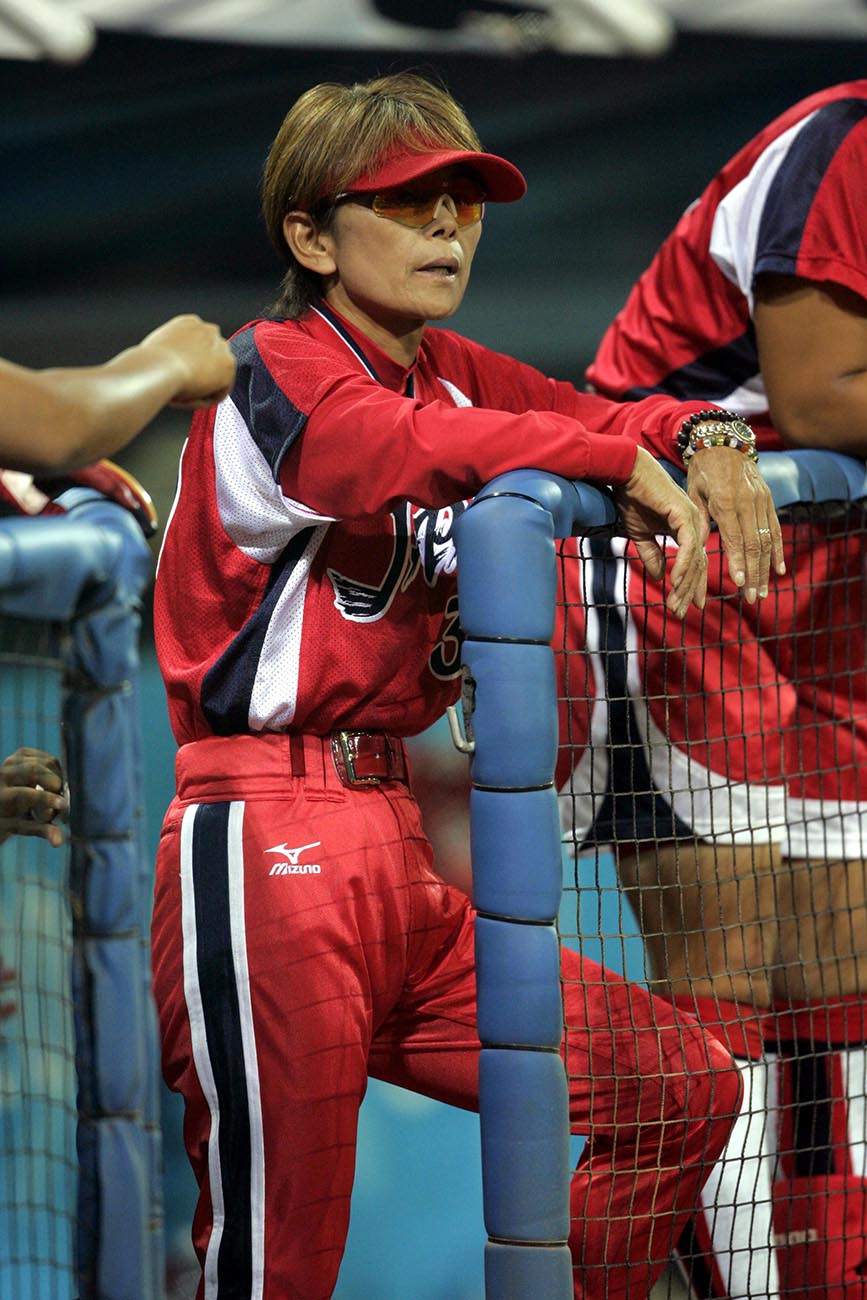
In 2005, Taeko Utsugi was inducted into the International Softball Federation (now World Baseball Softball Confederation) Hall of Fame for her coaching skills, becoming the first Japanese to be elected. ©Photo Kishimoto
TAEKO UTSUGI: After becoming national team manager, I really pushed the players hard during practice, and I have to give them credit for toughing it out. I wanted to instill an awareness of the generous support we were receiving and the excellent facilities we were privileged to use as members of the national team. And I think they stuck to it because we shared the goal of winning a medal in Sydney and elevating softball into a major sport.
I talked with the players a lot. Once you’re off the field, it’s important to communicate as fellow human beings. We bathed together after practice and sang silly songs at the top of our lungs. These are things that only a female manager can do.
I stepped down after 2004 and worked as a commentator during the Beijing Olympics in 2008, when Japan won the gold in softball. The players were exuberant and were eager to show me their medal. I was proud and happy for them, of course, but a part of me was crying, “Why couldn’t we win when I was manager?” I was embarrassed I felt that way, but that’s just being human. There were many players who couldn’t make the national team, after all, so I wouldn’t be surprised if they, too, had mixed feelings.
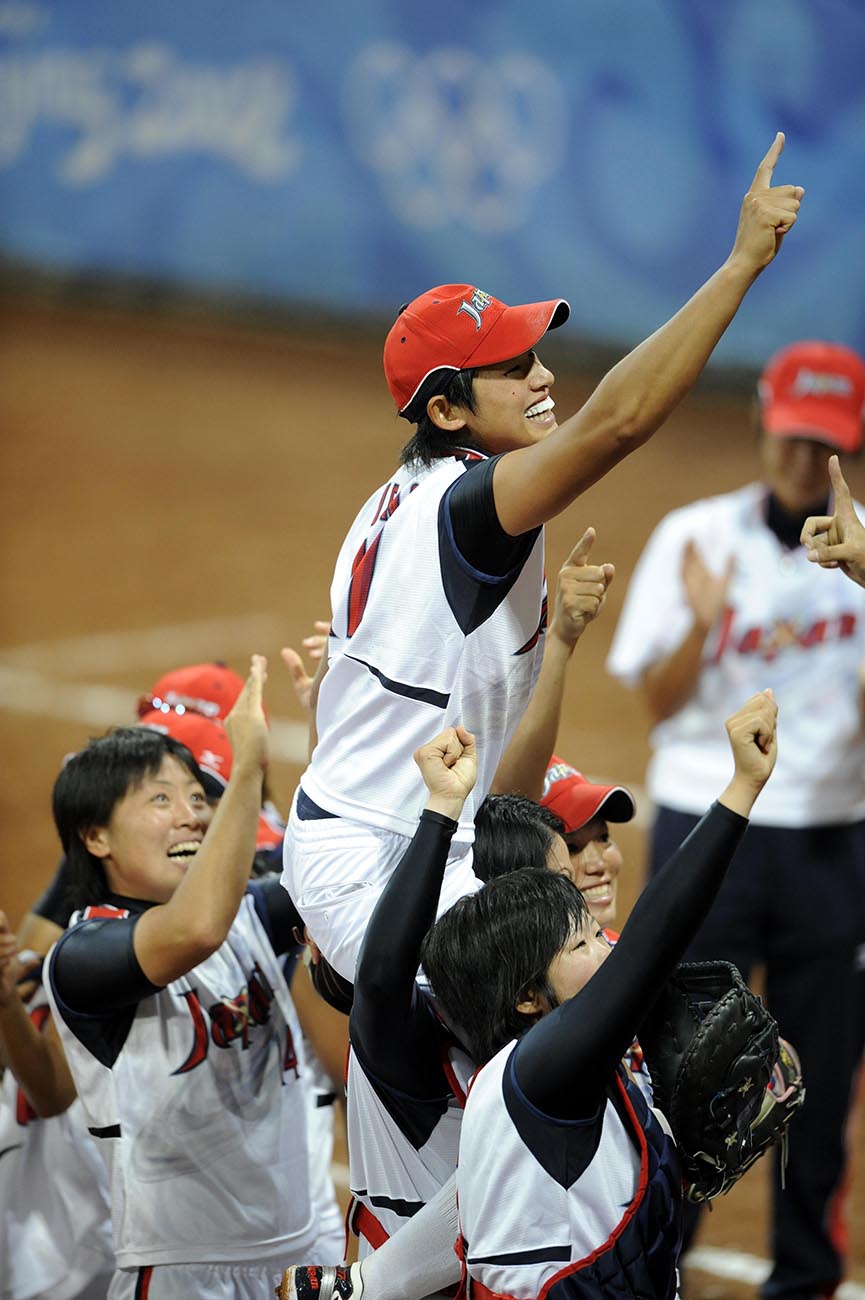
Members of the 2008 Olympic team wave to Utsugi in the broadcast booth immediately after their gold-medal triumph. ©Photo Kishimoto
Strength in Adversity
The head coach for women’s soccer in Tokyo 2020 is Asako Takakura, who has participated in most landmark events in the sport, including the inaugural FIFA Women’s World Cup in Beijing in 1991 and the 1996 Games in Atlanta, when women participated for the first time in Olympic soccer. She credits Japan’s strong performance over the past decade—winning the 2011 World Cup and finishing second at the 2012 London Olympics and the 2015 World Cup—to the rigorous efforts players made before women’s soccer began attracting global attention.
Takakura took over as head coach after Japan’s disappointing showing in 2016, when the team failed to qualify for the Rio Games. She has since made big changes to the national team, bringing in new players to build the future foundations of women’s soccer in Japan.
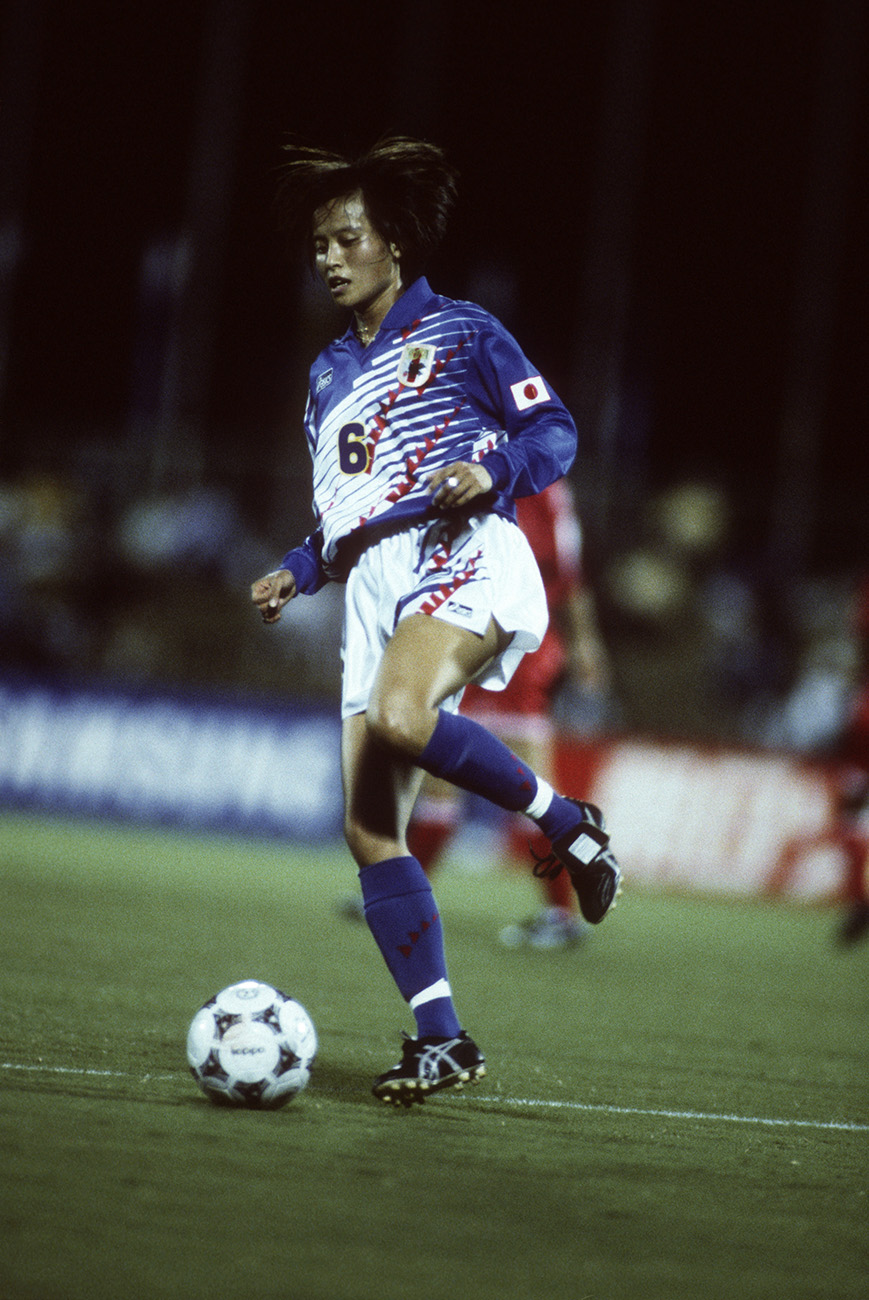
Asako Takakura was a pioneer in women’s soccer, first joining the national team when she was just 15. She played in 79 matches as its member and scored 30 goals before retiring from the sport at the age of 36. ©Photo Kishimoto
ASAKO TAKAKURA: The seeds of Japan’s recent success were sown in the late 1990s, when the country’s economic slump forced owners of J. League men’s teams to disband their women’s squads. Talented players like Homare Sawa, Eriko Arakawa, and Tomoe Kato took matters into their own hands to push women’s soccer forward, fearing that if they didn’t, their future as athletes would be doomed.
The younger members of the team that triumphed at the 2011 World Cup grew up watching the hardships these players went through and really looked up to them. The sport is highly competitive at the international level, though, and there’s no guarantee that a team can continue winning with the same players.
The big challenge for the Japanese team is to build strength, both physically and mentally. We have to play with confidence, even against the world’s most formidable opponents, and perform at our best, regardless of playing conditions. Personal skills are certainly important, but even more crucial may be mental fortitude.
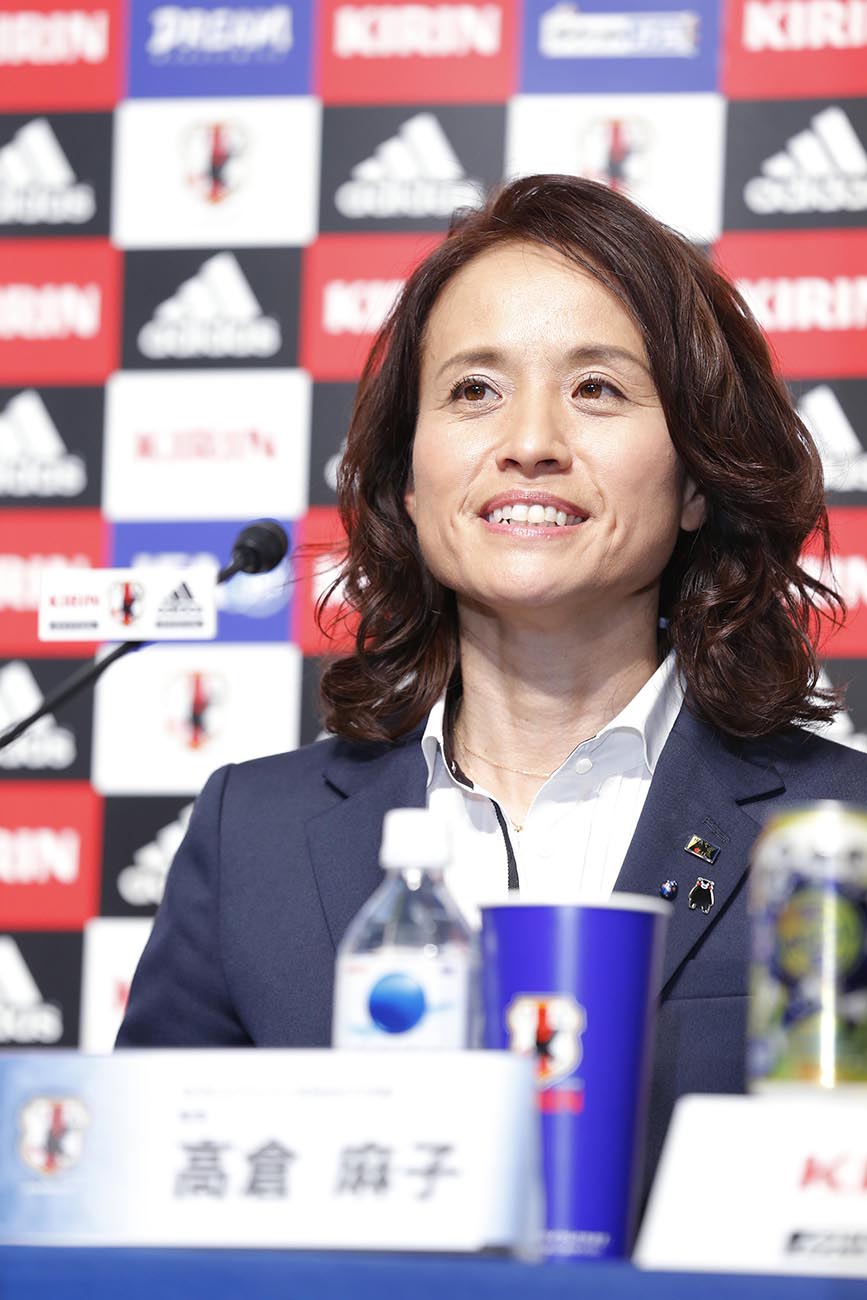
Takakura was named head coach of the national team in 2016, becoming the first woman to lead Nadeshiko Japan. ©Photo Kishimoto
The thing I always try to keep in mind as I coach is to make sure my instructions actually help the players. It would be easy to simply give them a routine regimen to follow, but unless it addresses specific issues, they’re not likely to get better.
Building strength requires good coaches. The members of the winning teams in 2011 and 2012 have a unique vantage point, and they have valuable insights and experiences they can share in a coaching capacity. Demand for female coaches at the high school and college levels is rising, and I’m sure we’ll see many more women in leadership positions going forward.
The Art of Coaching
Mayuko Fujiki was a synchronized (now artistic) swimming bronze medalist at the Atlanta Games, and she is among a number of Japanese women who are working as a coach abroad. She helped the Spanish team win a silver medal at the 2008 Beijing Games as an assistant coach, and was the head coach of the Chinese team that earned the silver at the 2016 Rio Olympics. She has developed a coaching style that emphasizes a sense of personal fulfillment based on her bittersweet memories of the severe, Spartan coaching she personally received as an Olympic athlete.
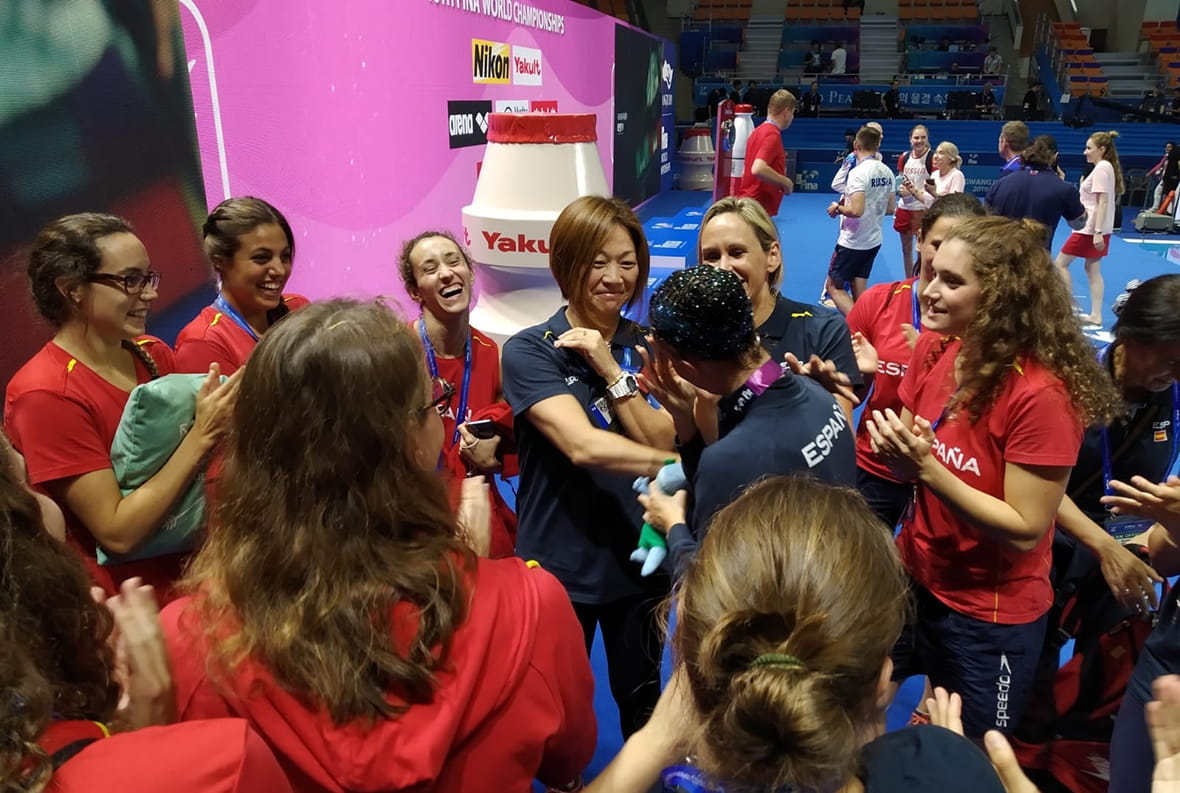
Mayuko Fujiki has coached swimmers in over 10 different countries and has guided the Spanish and Chinese teams to Olympic medals. She will serve as a coach of the Spanish team at the Tokyo Games. (Photo courtesy of Mayuko Fujiki)
MAYUKO FUJIKI: Coaching abroad has opened my eyes to differences in each country’s style. I think one source of Japan’s competitiveness over the years is the importance that’s placed on the fundamentals. From a very young age, swimmers are taught to do stretching exercises for at least an hour a day, and they perform very basic routines two hours every day.
Chinese swimmers will listen to their coach and do exactly as they’re told, whereas American and Spanish athletes have their own ideas about what makes a routine artistic, so getting everyone to agree is not easy. Spanish swimmers, in particular, are very proud of their originality and will want to showcase them, believing that will make the routine more interesting.
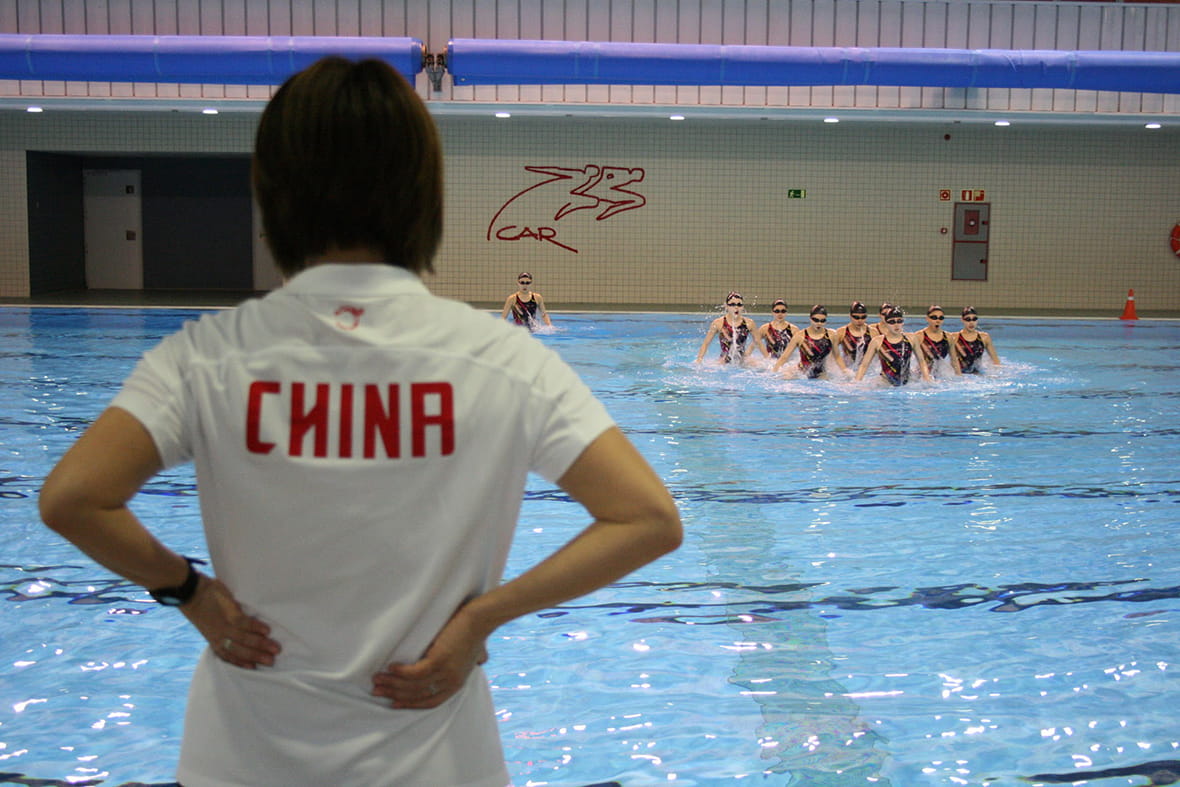
In describing her decision to coach, Fujiki says, “I’m eager to work in any country that understands my approach to artistic swimming, that’s enthusiastic about what I have to offer, and where I can expect to have an enjoyable and gratifying experience working with the athletes.” (Photo courtesy of Mayuko Fujiki)
For me, the true measure of a good coach is how satisfied athletes feel about what they’ve accomplished on the day they retire from active competition. It’s not just about winning; the biggest compliment a player can pay a coach, I think, is for him or her to say, “You’ve raised me to the highest level I could aspire to.” This requires unwavering commitment to the athlete to earn their trust, not only helping them improve their skills but offering moral support when they can’t compete because of an injury, say, and keeping them motivated as they overcome their difficulties. That’s what an ideal coach would do and I try to keep that in mind as an important component of the type of coach I want to be for the athletes.
Comments by the speakers translated from excerpts of separate interviews conducted in Japanese on February 1, 2021 (Taeko Utsugi), September 27, 2016 (Asako Takakura), and December 27, 2016 (Mayuko Fujiki).






